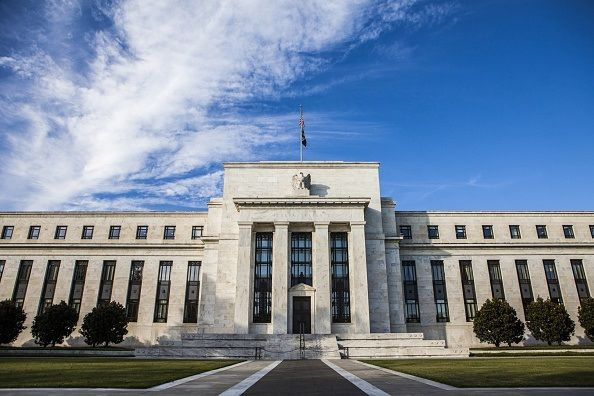June Rate Hike By Fed Seen As Unlikely After Jobs Report

Wall Street's top banks have all but abandoned any expectation that the Federal Reserve will raise interest rates in June, and most now see the U.S. central bank's next rate hike coming in September, according to a Reuters survey conducted on Friday.
Friday's weaker-than-expected payrolls report for April acted as the catalyst for several economists at primary dealers to back away from their previous predictions for an interest rate increase at the Fed's next meeting in June.
Moreover, conviction among primary dealers that the Fed would pull off more than one hike in 2016 is quickly eroding as well, with the soft employment data standing as only the latest indicator that U.S. economic growth is far from robust.
U.S. employers added 160,000 jobs in April, the fewest in seven months. Economists had anticipated more than 200,000 jobs had been added last month.
"This report did very little to make the case for a June rate hike," said Gennadiy Goldberg, an interest rate strategist at TD Securities in New York. "The data today really underscores our view that the Fed will want to see more data before hiking rates further."
TD Securities' economists were among those shifting their view on the next rate hike to September in Friday's survey from June in a similar poll taken one month ago. Reuters surveyed the 23 primary dealers, the largest banks authorized to trade directly with the Fed, following Friday morning's release of the monthly U.S. payrolls report, and had input from 18.
Fifteen of those 18 forecast the federal funds rate will remain at its current level of 0.25 percent to 0.50 percent at the end of the second quarter. In April, 10 of 16 dealers expected the Fed to raise rates by the end of June.
Thirteen of the 18 expect the Fed to lift rates by a quarter percentage point to a range of 0.50 percent to 0.75 percent by the end of the third quarter.
Meanwhile, just nine of 17 respondents see a second rate hike later in 2016 to a range of 0.75 percent to 1.00 percent. A month ago, 12 of 16 had forecast at least two rate hikes this year.
"They need more time to be sure that the weakness in the first quarter is temporary," said Dana Saporta, economist at Credit Suisse. "The first rate hike will likely come in the second half (of the year), starting with one in September, followed by one in December."
Most dealers said their conviction about a rate hike by the end of June had decreased since last month, and the median probability assigned by them to a June increase fell to 18 percent from 50 percent in April.
The dealers also lengthened their estimated timeline before the Fed would start reducing its $4.45 trillion balance sheet. The median forecast indicates no reduction before 2018 compared with mid-2017 in April's survey.
Dealers continue to see very little probability that the Fed will employ negative interest rates as several of its peer central banks have done around the world. Respondents see just a 10 percent probability of the Fed following suit, unchanged from the April survey.
© Copyright Thomson Reuters 2024. All rights reserved.



















